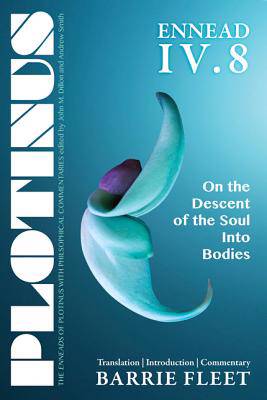
- Retrait gratuit dans votre magasin Club
- 7.000.000 titres dans notre catalogue
- Payer en toute sécurité
- Toujours un magasin près de chez vous
- Retrait gratuit dans votre magasin Club
- 7.000.0000 titres dans notre catalogue
- Payer en toute sécurité
- Toujours un magasin près de chez vous
Plotinus Ennead IV.8: On the Descent of the Soul Into Bodies
Translation, with an Introduction, and Commentary
Barrie Fleet, Andrew SmithDescription
Plotinus was much exercised by Plato's doctrines of the soul. In this treatise, at chapter 1 line 27, he talks of "the divine Plato, who has said in many places in his works many noble things about the soul and its arrival here, so that we can hope for some clarity from him. So what does the philosopher say? It is clear that he does not always speak with sufficient consistency for us to make out his intentions with any ease." The issue in this treatise is one that has puzzled students of Plato from ancient to modern times--and is indeed a popular topic for undergraduate essays even today: Why should the philosopher, who has ascended through a long and painful process of dialectic to "assimilation to the divine," ever descend back into the body? Plotinus himself is said by Porphyry to have attained such a state of other-worldly transcendence on at least four occasions during his lifetime, so this was a very real and personal issue for him. In this treatise we see him grappling with it.
Spécifications
Parties prenantes
- Auteur(s) :
- Editeur:
Contenu
- Nombre de pages :
- 220
- Langue:
- Anglais
- Collection :
Caractéristiques
- EAN:
- 9781930972773
- Date de parution :
- 06-06-12
- Format:
- Livre broché
- Format numérique:
- Trade paperback (VS)
- Dimensions :
- 124 mm x 188 mm
- Poids :
- 226 g

Les avis
Nous publions uniquement les avis qui respectent les conditions requises. Consultez nos conditions pour les avis.






